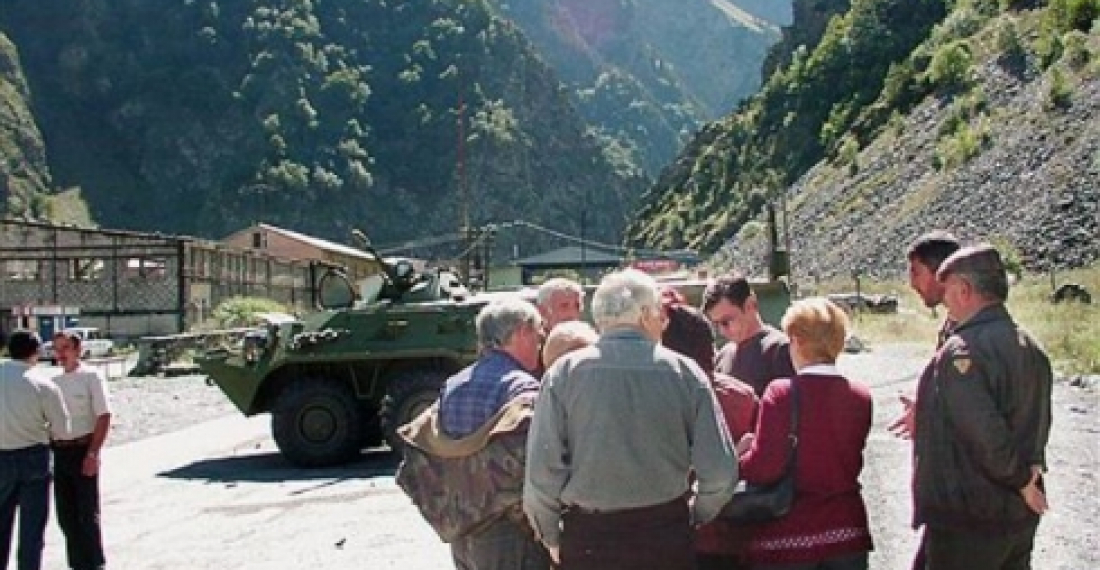Russia and Georgia are expected to sign an agreement this week that would enable Russia to proceed with its membership application for the World Trade Organisation (WTO). Georgia, already a member of the WTO, has insisted since 2004 on the need to monitor trade betwen its breakaway regions of Abkhazia and South Ossetia and Russia as a condition of Russian membership. The deal envisages deploying representatives of a contracting company to do this task. The deal, brokered with much effort by Swiss diplomats, has rightly been hailed as a diplomatic success - a step that may eventually also improve relations between Russia and Georgia which have been largely non existant since the August 2008 War.
The proof of the success of this deal will however be in its implimentation. Already there are signs of the difficulties ahead. Radio Liberty reports that even before the details of the compromise agreement were made public, de facto Abkhaz Foreign Minister Vyacheslav Chirikba told the Russian news agency Regnum that "Abkhazia will not tolerate any monitors on its territory, that would be a violation of our country's sovereignty." De facto President Eduard Kokoity similarly said South Ossetia would never allow international monitors access to its borders. The South Ossetian Foreign Ministry for its part affirmed that the republic, as a sovereign state, bases its trade relations with Russia on international law and does not consider the deployment of international or other monitors either necessary or permissible.
It is understood that monitors will be placed on the Russian side of the border, so initially these objections will not matter. However, the issue of free movement across the de facto border between Russia and Abkhazia and Russia and South Ossetia has been at the heart of the conflicts in the South Caucasus for decades. For South Ossetia in particular, the Roki Tunnel under the Caucasus mountains constitutes its only physical link with the outside world except through Georgia, and connects the two Ossetias - North and South. Any interference with this sole physical connection is considered an existential issue.
For the moment the Russians hold all the cards in their relationship with the two self declared republics that they recognised as independent states in 2008, and that they prop up with military and financial support. However politics in the two entities has a dynamic of its own, and this issue has the potential of becoming a thorny one. Once the diplomatic toasting of the deal is over, the hard bit of actually implimenting it (against the will of the Ossetians and the Abkhaz) will start.
source: commonspace.eu
photo: Checkpoint near the Roki Tunnel that runs under the Caucasus Mountains and that connects North and South Ossetia (Archive Picture courtesy of ITAR TASS)







